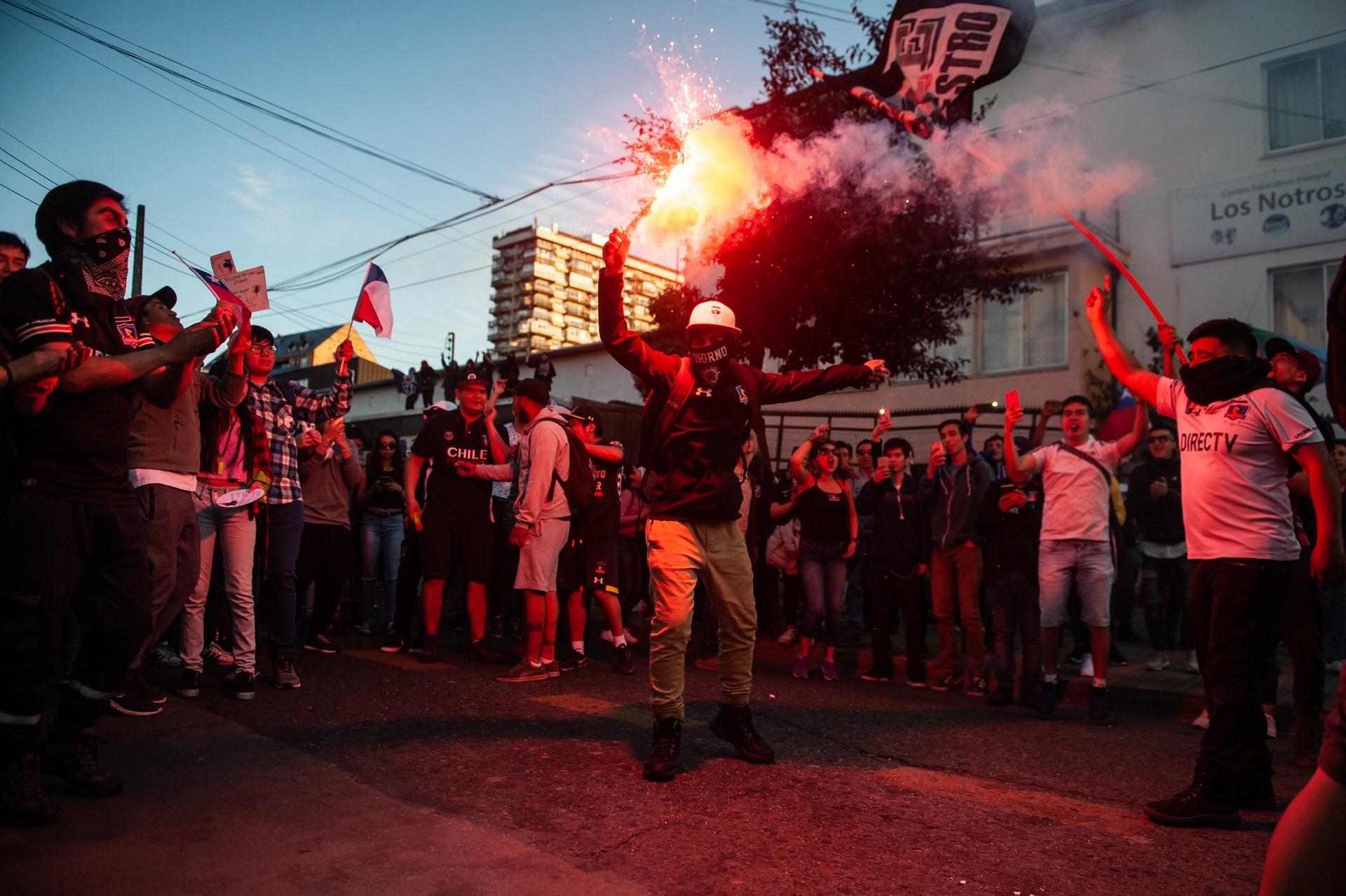
How can we make the cake as big as possible, and how can everybody get a piece of it?
Part 1 - What is inequality?
Often we hear that inequality is bad for us. That it affects our possibility to grow, that it creates social frictions and unrest, and that it violates human rights. Let’s take the social unrests of 2019 that marked Latin America. People took the streets continuously in Chile, Bolivia, Peru, Colombia, and Venezuela, from the Carribean down to Patagonia, to protest about their living conditions and demonstrate their dissatisfaction with local authorities and governance. It was declared the region’s strongest uptake for the last decades. It lead to the accusation of ex-president Evo Morales of terrorism and him fleeing to excil, the declaration of the State of Emergency in Santiago de Chile and 3,746 being wounded and 26 dead in the entire country of Chile, and damages of 1.4 billion US dollars due to destruction, looting and decreased sales (Source). It resulted in the president of Peru dissolving congress, and a violent response by the Maduro government in Venezuela as a response to mass demonstration against its leadership, during which children got hurt and murdered (Source).

These are not the only events that relate to inequality. One such event was the Arab Spring that took place nearly a decade ago, and which was a pro-democratic movement in several large Muslim countries, as Tunisia, Morocco, Syria, Libya, Egypt and Bahrain, seeking increased social freedoms and greater participation in the political process. And, not so long ago Europe saw itself subject to a large refugee crisis. On December 7 of 2015 more than 911,000 refugees and migrants had arrived on European ground (Source).
These are only some of the consequences that inequality creates. But what is inequality exactly, and how does it evolve? Economists measure inequality by the Gini index, an index that ranges from 0 to 100, with 0 being perfect equality, and 100 being perfect inequality. When looking at data published by the World Bank and abstracting from the country for which data is not available, the countries that rank highest along the Gini Index are South Africa, Namibia, Suriname, Zambia, Sao Tome and Principe, Mozambique, and also Brazil. According to the World Bank, 10 percent of the World’s population live at 1.90 $ per day (in PPP terms), and when looking at the percentage of the population living below the national poverty line a stunning 82.3 percent of the population of South Sudan live below its national poverty line. More than 50 percent of the population live below the national poverty line in Liberia, Malawi, Sierra Leone, Afghanistan, Haiti, Eritrea, among others. But these are only numbers, and they are difficult to grasp. What exactly do these numbers imply?
They mean, that nearly 30 percent of the world’s urban population live in slums (Source), that 8.7 percent of the World’s population face severe food insecurity, that in 2018 821.6 million (or 1 in 9 people) suffered from hunger and that 20.5 million (one in seven) of babys were born with low birth-weight (Source). That in Somalia only 5 percent of the overall population above 15 years old is literate, compared to 86 % of the overall world (Source). That in Banghladesh there are 7.7 hospital beds per 10,000 people compared to 80.6 in Germany (Source).
Inequality can mean a lot of things. If interpreted from a purely economic perspective, it means an unequal distribution of income. If interpreted from a legal perspective, it stands for the inequality of rights and obligations. If interpreted from a distributional perspective, it means the provision of equal opportunities and the freedom of choice to everybody. And then there is philosophy, analyzing inequality from a variety of different starting points. As Rousseau states in his discourse on inequality in 1983:
“I conceive two species of inequality among men; one which I call natural, or physical inequality, because it is established by nature, and consists in the difference of age, health, bodily strength, and the qualities of the mind, or of the soul; the other which may be termed moral, or political inequality, because it depends on a kind of convention, and is established, or at least authorized, by the common consent of mankind. This species of inequality consists in the different privileges, which some men enjoy, to the prejudice of others, such as that of being richer, more honoured, more powerful, and even that of exacting obedience from them.”
All these definitions have one thing in common. While some enjoy abundance, others suffer from scarcity. Inequality is created early on in life, even before we are born, during pregnancy. We then drag it along our entire life, and often, the path out is hard, and in most cases, even impossible. We need carefully designed measures to address inequality, and equip people with the necessary tools to make their way out of poverty.
This means nothing else than rethinking the way we are currently baking our cakes. Maybe currently there is one chef preparing the cake, and 10 assistant cooks observing him. But why not hand the wooden spoons over to the 10 assistant cooks, facilitating them the preparation of 10 more cakes? Maybe currently there is one chef, and 10 kitchen porters with cleaning duties. But why not train them in the basics of their own bakery cuisine, allowing them to stand on their own feet, instead of wiping around the kitchen chef’s feet? Maybe currently the chicken, which produce the eggs for our cake, only produce small eggs. But why not invest in the knowledge and technology to create larger eggs, and in the end, a bigger cake?
